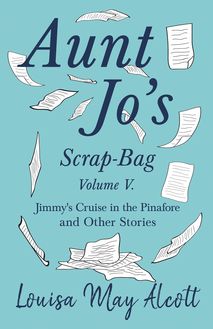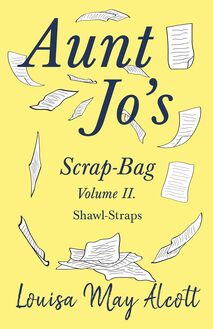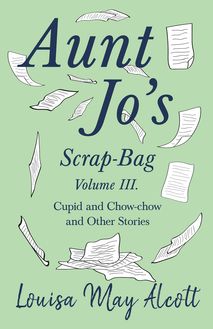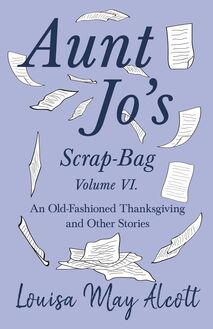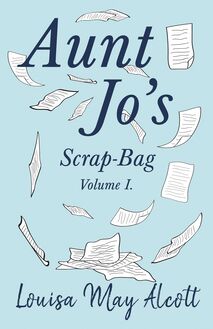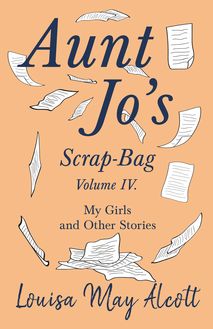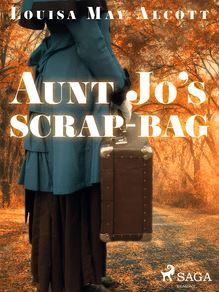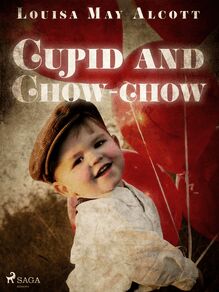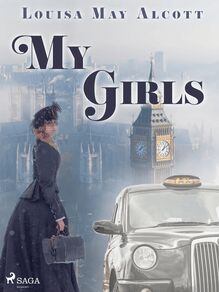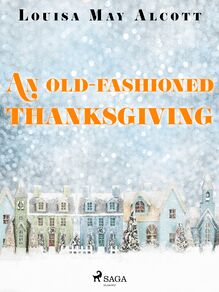-
 Univers
Univers
-
 Ebooks
Ebooks
-
 Livres audio
Livres audio
-
 Presse
Presse
-
 Podcasts
Podcasts
-
 BD
BD
-
 Documents
Documents
-
- Cours
- Révisions
- Ressources pédagogiques
- Sciences de l’éducation
- Manuels scolaires
- Langues
- Travaux de classe
- Annales de BEP
- Etudes supérieures
- Maternelle et primaire
- Fiches de lecture
- Orientation scolaire
- Méthodologie
- Corrigés de devoir
- Annales d’examens et concours
- Annales du bac
- Annales du brevet
- Rapports de stage
La lecture à portée de main
Vous pourrez modifier la taille du texte de cet ouvrage
Découvre YouScribe en t'inscrivant gratuitement
Je m'inscrisDécouvre YouScribe en t'inscrivant gratuitement
Je m'inscrisEn savoir plus
Vous pourrez modifier la taille du texte de cet ouvrage
En savoir plus

Description
Sujets
Informations
| Publié par | Read Books Ltd. |
| Date de parution | 11 octobre 2019 |
| Nombre de lectures | 0 |
| EAN13 | 9781528788649 |
| Langue | English |
| Poids de l'ouvrage | 1 Mo |
Informations légales : prix de location à la page 0,0500€. Cette information est donnée uniquement à titre indicatif conformément à la législation en vigueur.
Extrait
AUNT JO'S SCRAP-BAG
VOLUME VI. AN OLD-FASHIONED THANKSGIVING ETC .
By
LOUISA MAY ALCOTT
This edition published by Read Books Ltd. Copyright © 2019 Read Books Ltd. This book is copyright and may not be
reproduced or copied in any way without
the express permission of the publisher in writing
British Library Cataloguing-in-Publication Data
A catalogue record for this book is available from the British Library
Contents
Louisa May Alcott
AN OLD-FASHIONED THANKSGIVING.
HOW IT ALL HAPPENED.
THE DOLLS' JOURNEY FROM MINNESOTA TO MAINE.
MORNING-GLORIES.
SHADOW-CHILDREN.
POPPY'S PRANKS.
WHAT THE SWALLOWS DID.
LITTLE GULLIVER.
THE WHALE'S STORY.
A STRANGE ISLAND.
FANCY'S FRIEND.
Louisa May Alcott
Louisa May Alcott was an American Novelist, best known for the classic Little Women (1868) and its sequels Little Men and Jo’s Boys. Alcott was born on 29 November, 1832 in Germantown, Pennsylvania, USA, and was raised by her transcendentalist parents. The family, despite their connections with the American intellectual elite, suffered severe financial hardship and Alcott frequently helped to support the household. In 1840, after several financial setbacks, most notably following the experimental school set up by Louisa May’s father, the family moved to a cottage along the Sudbury River in Massachusetts. In 1843, the family moved again to the Utopian Fruitlands Community , an agrarian commune, dedicated to natural living. They finally settled in a house they named Hillside in 1845. As a result of this peripatetic childhood, Alcott’s schooling was mainly received from her father, who was an incredibly strict disciplinarian, high thinker and advocate of plain living. This instilled a determination and strong work ethic in Alcott, who worked as a teacher, governess, seamstress and writer in her early years. As an adult, Alcott was a strong abolitionist and a feminist advocate, becoming the first woman to register to vote in Concord, in a school board election. During the civil war, Alcott worked as a nurse in the Union Hospital at Georgetown, D.C. She collected all her letters, often dryly humorous, in book entitled Hospital Sketches (1863); a work which brought Alcott critical acclaim. Following on from this success, Alcott wrote several novels under the pen name A. L. Barnard, most notably A Long Fatal Love Chase (1866) and A Modern Mephistopheles (1875). However, Little Women and its sequels were Alcott’s major successes; the first book dealt with the childhood of Meg, Jo, Beth and Amy; characters strongly based on Alcott’s childhood accompanied by her own three sisters. The sequel, Good Wives (1869) dealt with their progression into adulthood, whilst Little Men (1871) detailed Jo’s life at the school she founded alongside her husband. Jo’s Boys (1886) completed the ‘Family Saga’. The Character Jo was loosely based on Alcott’s own life, however unlike the heroine, Alcott never married, commenting that ‘I am more than half-persuaded that I am a man's soul put by some freak of nature into a woman's body ... because I have fallen in love with so many pretty girls and never once the least bit with any man.’ Alcott was firmly part of the Gilded Age , along with authors such as Elizabeth Stoddard and Rebecca Harding Davis, she addressed women’s issues in a modern and candid manner. Alcott continued to write until her death on 6 March, 1888. The cause of death is uncertain; she suffered chronic health problems, including vertigo and typhoid, the latter of which was treated with mercury. However recent analysis of her illnesses has suggested an autoimmune disease such as Lupus. She is buried in Sleepy Hollow Cemetery, Concord, Massachusetts, on a hillside known as Author’s Ridge.
AN OLD-FASHIONED T HANKSGIVING. "Suddenly Tilly threw down the axe, flung open the door, and ran straight into the arms o f the bear."
HOW IT A LL HAPPENED. Dolly opened the door, and started back with a cry of astonishment at the lovely spectacle before her.
I.
AN OLD-FASHIONED THANKSGIVING.
SIXTY years ago, up among the New Hampshire hills, lived Farmer Bassett, with a house full of sturdy sons and daughters growing up about him. They were poor in money, but rich in land and love, for the wide acres of wood, corn, and pasture land fed, warmed, and clothed the flock, while mutual patience, affection, and courage made the old farm-house a very happy home.
November had come; the crops were in, and barn, buttery, and bin were overflowing with the harvest that rewarded the summer's hard work. The big kitchen was a jolly place just now, for in the great fireplace roared a cheerful fire; on the walls hung garlands of dried apples, onions, and corn; up aloft from the beams shone crook-necked squashes, juicy hams, and dried venison—for in those days deer still haunted the deep forests, and hunters flourished. Savory smells were in the air; on the crane hung steaming kettles, and down among the red embers copper sauce-pans simmered, all suggestive of some approaching feast.
A white-headed baby lay in the old blue cradle that had rocked seven other babies, now and then lifting his head to look out, like a round, full moon, then subsided to kick and crow contentedly, and suck the rosy apple he had no teeth to bite. Two small boys sat on the wooden settle shelling corn for popping, and picking out the biggest nuts from the goodly store their own hands had gathered in October. Four young girls stood at the long dresser, busily chopping meat, pounding spice, and slicing apples; and the tongues of Tilly, Prue, Roxy, and Rhody went as fast as their hands. Farmer Bassett, and Eph, the oldest boy, were "chorin' 'round" outside, for Thanksgiving was at hand, and all must be in order for that time-honored day.
To and fro, from table to hearth, bustled buxom Mrs. Bassett, flushed and floury, but busy and blithe as the queen bee of this busy little hive should be.
"I do like to begin seasonable and have things to my mind. Thanksgivin' dinners can't be drove, and it does take a sight of victuals to fill all these hungry stomicks," said the good woman, as she gave a vigorous stir to the great kettle of cider apple-sauce, and cast a glance of housewifely pride at the fine array of pies set forth on the buttery shelves.
"Only one more day and then it will be time to eat. I didn't take but one bowl of hasty pudding this morning, so I shall have plenty of room when the nice things come," confided Seth to Sol, as he cracked a large hazel-nut as easily as a squirrel.
"No need of my starvin' beforehand. I always have room enough, and I'd like to have Thanksgiving every day," answered Solomon, gloating like a young ogre over the little pig that lay near by, ready for roasting.
"Sakes alive, I don't, boys! It's a marcy it don't come but once a year. I should be worn to a thread-paper with all this extra work atop of my winter weavin' and spinnin'," laughed their mother, as she plunged her plump arms into the long bread-trough and began to knead the dough as if a famine was at hand.
Tilly, the oldest girl, a red-cheeked, black-eyed lass of fourteen, was grinding briskly at the mortar, for spices were costly, and not a grain must be wasted. Prue kept time with the chopper, and the twins sliced away at the apples till their little brown arms ached, for all knew how to work, and did so now with a will.
"I think it's real fun to have Thanksgiving at home. I'm sorry Gran'ma is sick, so we can't go there as usual, but I like to mess 'round here, don't you, girls?" asked Tilly, pausing to take a sniff at the spicy pestle.
"It will be kind of lonesome with only our own folks." "I like to see all the cousins and aunts, and have games, and sing," cried the twins, who were regular little romps, and could run, swim, coast and shout as well as their brothers.
"I don't care a mite for all that. It will be so nice to eat dinner together, warm and comfortable at home," said quiet Prue, who loved her own cozy nooks like a cat.
"Come, girls, fly 'round and get your chores done, so we can clear away for dinner jest as soon as I clap my bread into the oven," called Mrs. Bassett presently, as she rounded off the last loaf of brown bread which was to feed the hungry mouths that seldom tasted any other.
"Here's a man comin' up the hill, lively!" "Guess it's Gad Hopkins. Pa told him to bring a dezzen oranges, if they warn't too high!" shouted Sol and Seth, running to the door, while the girls smacked their lips at the thought of this rare treat, and Baby threw his apple overboard, as if getting ready for a new cargo.
But all were doomed to disappointment, for it was not Gad, with the much-desired fruit. It was a stranger, who threw himself off his horse and hurried up to Mr. Bassett in the yard, with some brief message that made the farmer drop his ax and look so sober that his wife guessed at once some bad news had come; and crying, "Mother's wuss! I know she is!" out ran the good woman, forgetful of the flour on her arms and the oven waiting for its most important batch.
The man said old Mr. Chadwick, down to Keene, stopped him as he passed, and told him to tell Mrs. Bassett her mother was failin' fast, and she'd better come to-day. He knew no more, and having delivered his errand he rode away, saying it looked like snow and he must be jogging, or he wouldn't get home till night.
"We must go right off, Eldad. Hitch up, and I'll be ready in less'n no time," said Mrs. Bassett, wasting not a minute in tears and lamentations, but pulling off her apron as she went in, with her mind in a sad jumble of bread, anxiety, turkey, sorrow, haste, and cider apple-sauce.
A few words told the story, and the children left their work to help her
-
 Univers
Univers
-
 Ebooks
Ebooks
-
 Livres audio
Livres audio
-
 Presse
Presse
-
 Podcasts
Podcasts
-
 BD
BD
-
 Documents
Documents
-
Jeunesse
-
Littérature
-
Ressources professionnelles
-
Santé et bien-être
-
Savoirs
-
Education
-
Loisirs et hobbies
-
Art, musique et cinéma
-
Actualité et débat de société
-
Jeunesse
-
Littérature
-
Ressources professionnelles
-
Santé et bien-être
-
Savoirs
-
Education
-
Loisirs et hobbies
-
Art, musique et cinéma
-
Actualité et débat de société
-
Actualités
-
Lifestyle
-
Presse jeunesse
-
Presse professionnelle
-
Pratique
-
Presse sportive
-
Presse internationale
-
Culture & Médias
-
Action et Aventures
-
Science-fiction et Fantasy
-
Société
-
Jeunesse
-
Littérature
-
Ressources professionnelles
-
Santé et bien-être
-
Savoirs
-
Education
-
Loisirs et hobbies
-
Art, musique et cinéma
-
Actualité et débat de société
- Cours
- Révisions
- Ressources pédagogiques
- Sciences de l’éducation
- Manuels scolaires
- Langues
- Travaux de classe
- Annales de BEP
- Etudes supérieures
- Maternelle et primaire
- Fiches de lecture
- Orientation scolaire
- Méthodologie
- Corrigés de devoir
- Annales d’examens et concours
- Annales du bac
- Annales du brevet
- Rapports de stage
